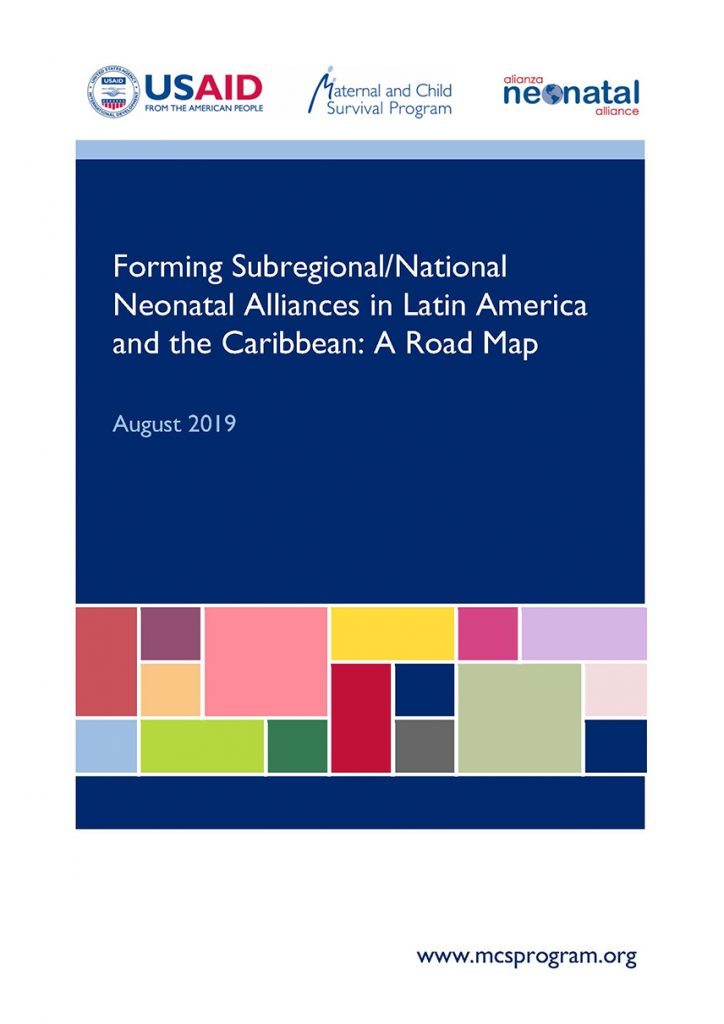
This document identifies major steps needed to create a subregional or national neonatal alliance. They are recommendations based on experiences of Latin American and Caribbean (LAC) Neonatal Alliance members at the regional and country level. It articulates a shared strategic approach and aims to serve as a resource for countries within the LAC region to […]
Read More…
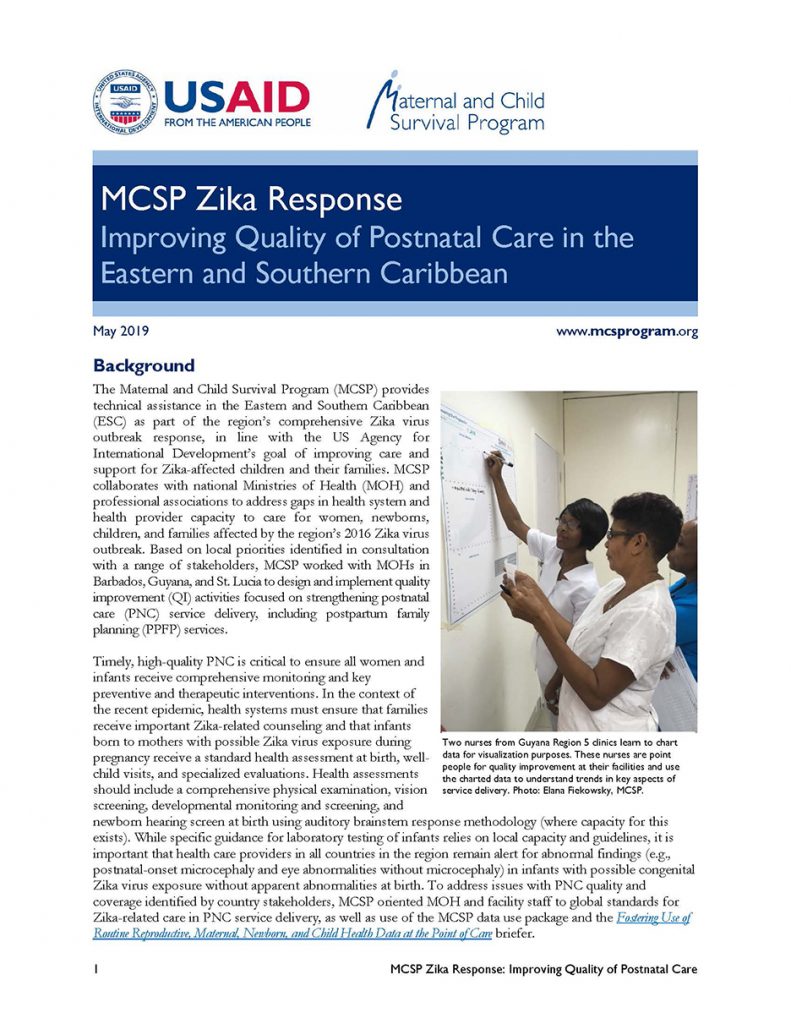
To address issues with postnatal care (PNC) quality and coverage identified by country stakeholders, MCSP oriented Ministries of Health and facility staff to global standards for Zika-related care in PNC service delivery. […]
Read More…
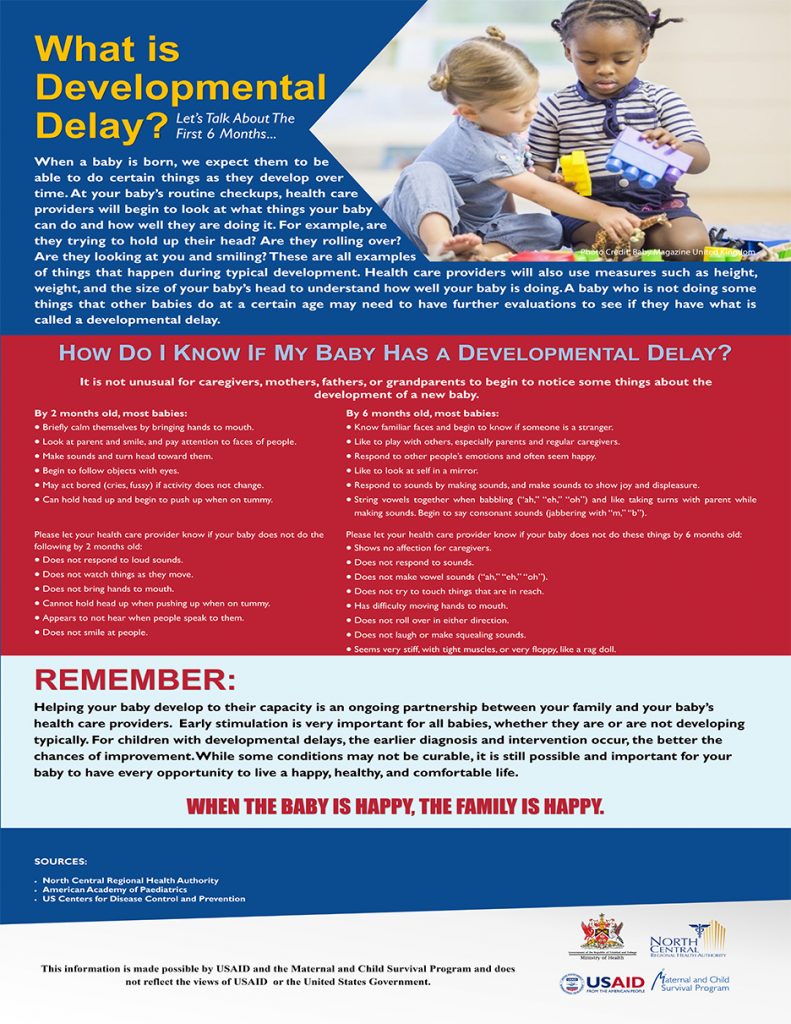
MCSP provides leadership, globally and regionally in the Eastern and Southern Caribbean, on technical issues related to the Zika outbreak response, particularly with regard to the care and support of Zika-affected children and their families. The Zika Trinidad Sub-Award Materials includes a: What is Developmental Delay – Poster What is Developmental Delay – Brochure What Is […]
Read More…
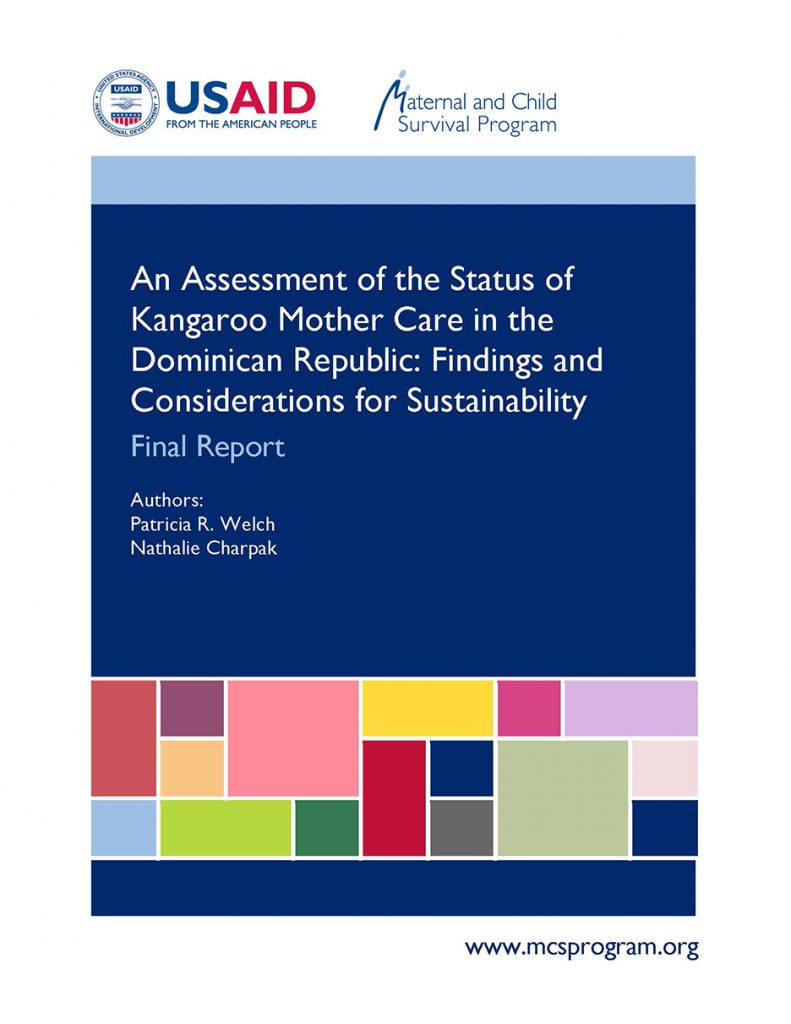
This report details the status of implementation of Kangaroo Mother Care (KMC) in the Dominican Republic (DR) along with key bottlenecks and challenges in KMC implementation and proposed solutions. The objectives of this assessment were to: Assess the status of implementation and scale-up of KMC in the Dominican Republic Assess for gaps and bottlenecks in […]
Read More…
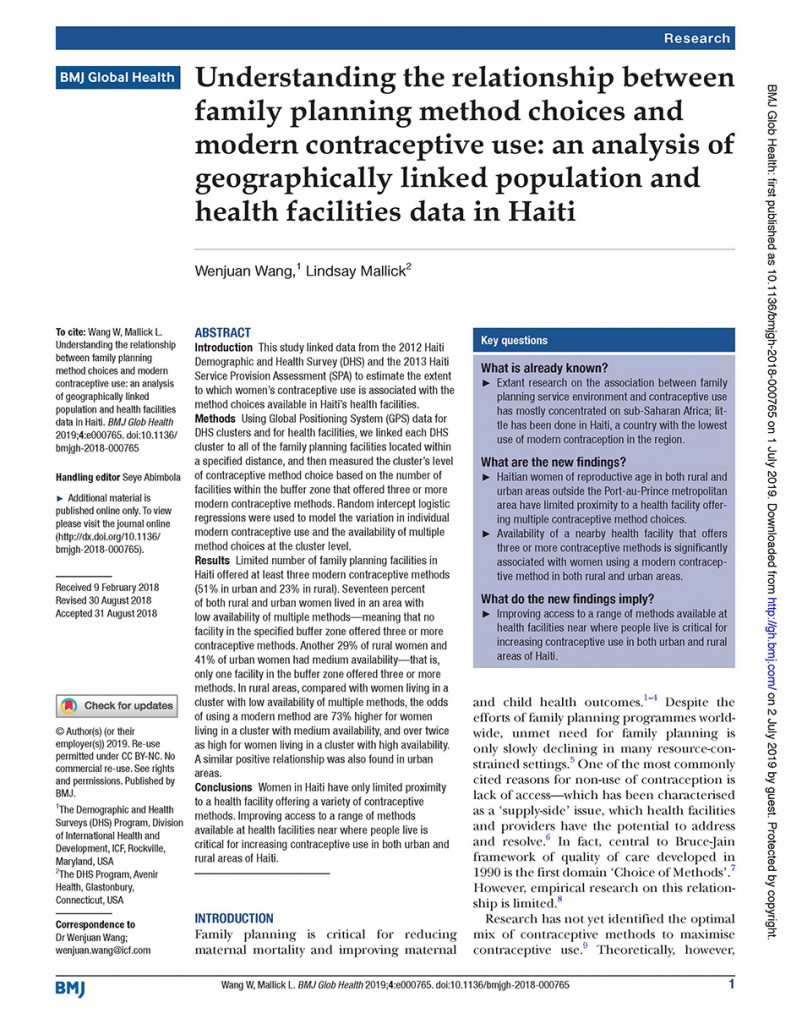
This study linked data from the 2012 Haiti Demographic and Health Survey and the 2013 Haiti Service Provision Assessment to estimate the extent to which women’s contraceptive use is associated with the method choices available in Haiti’s health facilities. […]
Read More…
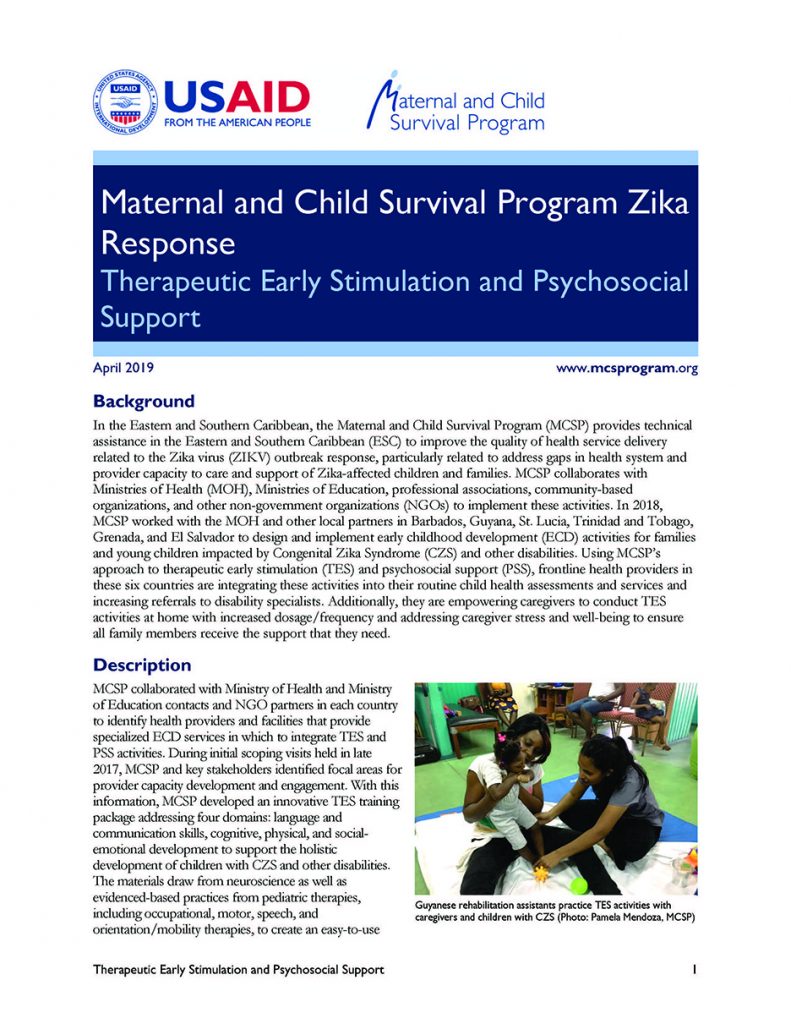
MCSP worked with the Ministries of Health and other local partners in Barbados, Guyana, St. Lucia, Trinidad and Tobago, Grenada, and El Salvador to design and implement early childhood development (ECD) activities for families and young children impacted by Congenital Zika Syndrome (CZS) and other disabilities. Using MCSP’s approach to therapeutic early stimulation (TES) and […]
Read More…
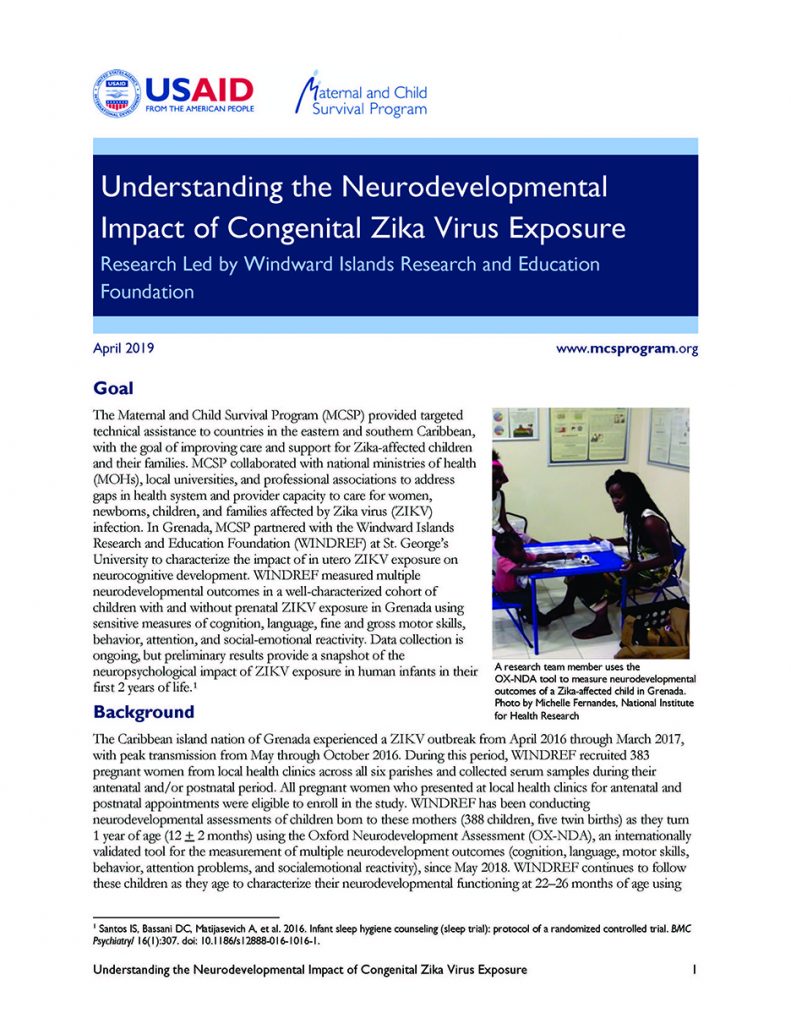
In Grenada, MCSP partnered with the Windward Islands Research and Education Foundation (WINDREF) at St. George’s University to characterize the impact of in utero ZIKV exposure on neurocognitive development. WINDREF measured multiple neurodevelopmental outcomes in a well-characterized cohort of children with and without prenatal ZIKV exposure in Grenada using sensitive measures of cognition, language, fine […]
Read More…
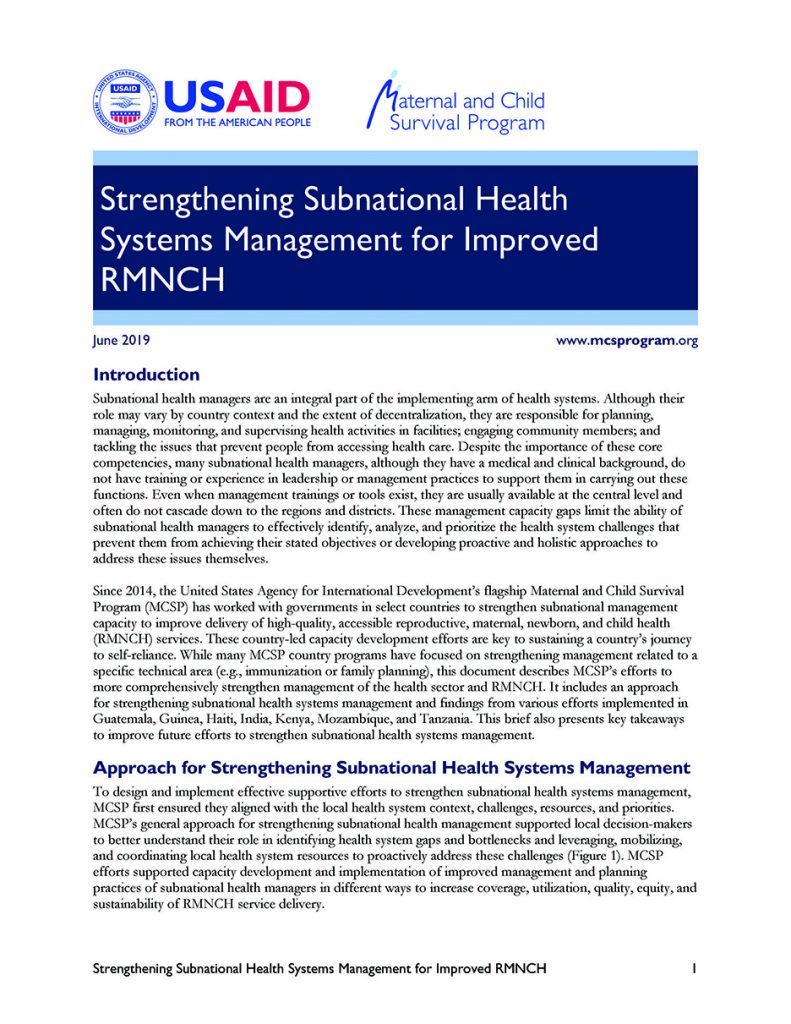
This brief describes MCSP’s efforts to more comprehensively strengthen management of the health sector and reproductive, maternal, newborn and child health (RMNCH). It includes an approach for strengthening subnational health systems management and findings from various efforts implemented in Guatemala, Guinea, Haiti, India, Kenya, Mozambique and Tanzania. It also presents key takeaways to improve future […]
Read More…
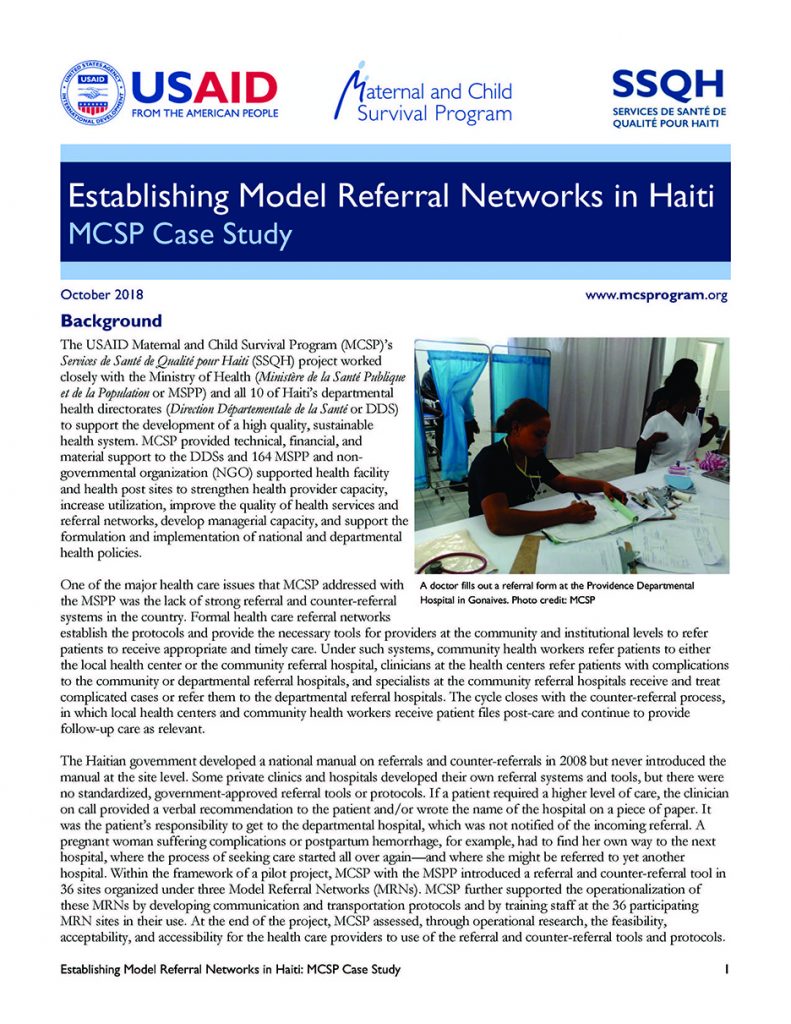
MCSP with the Ministry of Health introduced a referral and counter-referral tool in 36 sites organized under three Model Referral Networks (MRNs). MCSP further supported the operationalization of these MRNs by developing communication and transportation protocols and by training staff at the 36 participating MRN sites in their use. At the end of the project, […]
Read More…
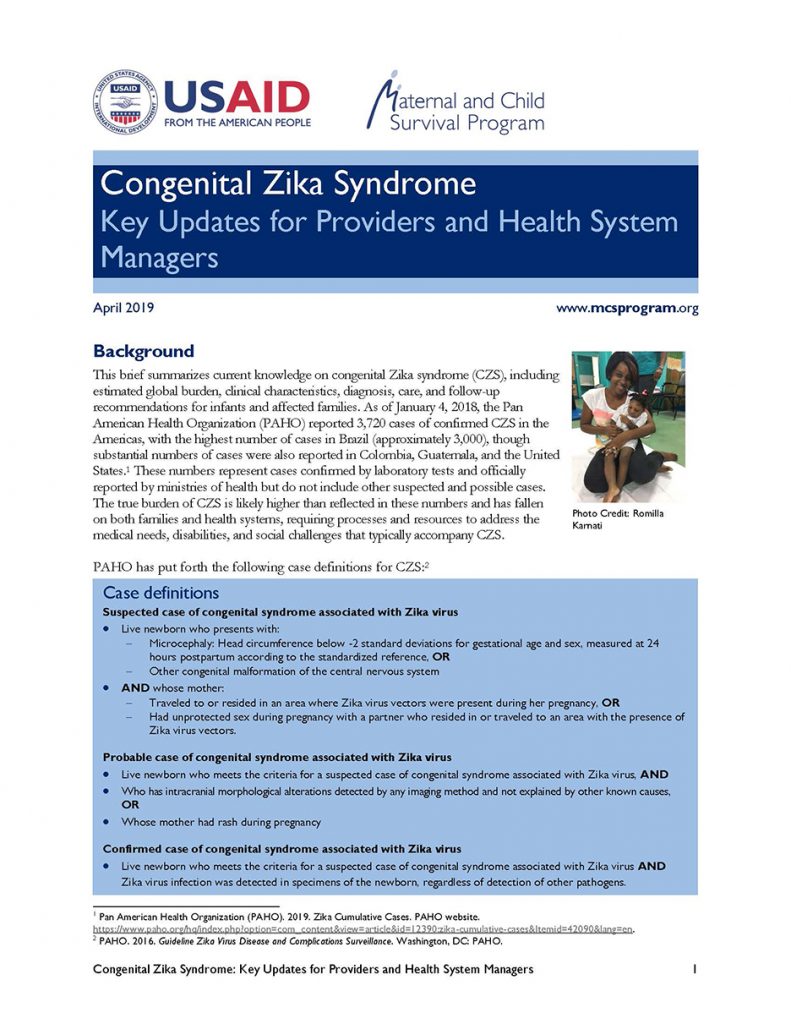
This brief summarizes current knowledge on congenital Zika syndrome (CZS), including estimated global burden, clinical characteristics, diagnosis, care, and follow-up recommendations for infants and affected families. […]
Read More…










